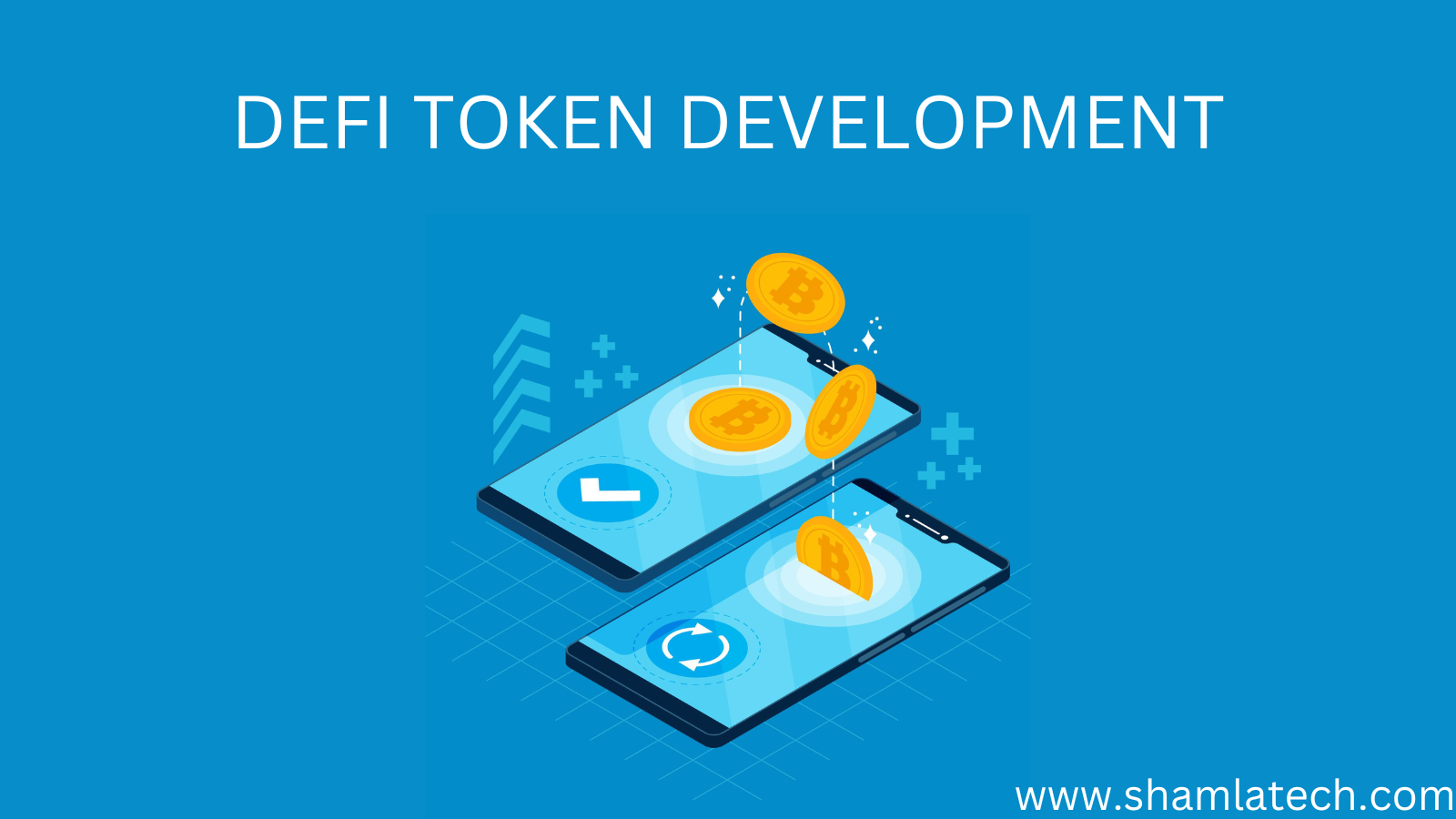Decentralized finance, or DeFi, is a rapidly growing industry that has been gaining momentum in recent years. DeFi has revamped the traditional financial sector by creating a new ecosystem that is decentralized, transparent, and accessible to everyone. One of the key elements of the DeFi ecosystem is the DeFi token development, a process of creating digital assets. DeFi token development has revolutionized the way people manage and invest their assets by providing a trustless financial system. In this article, we will explore the different types of DeFi tokens and the process of DeFi token development.
What are DeFi tokens?
DeFi tokens are digital assets that are created on blockchain networks and represent ownership in decentralized finance (DeFi) projects. These tokens are designed to provide various benefits to their holders, such as access to DeFi applications, incentivizing users, facilitating transactions, and governance control. DeFi tokens are built on decentralized blockchain networks, such as Ethereum, Binance Smart Chain, and Solana. These networks allow for the creation of smart contracts that can be used to create and manage DeFi tokens. Smart contracts are self-executing agreements that can be programmed to execute specific functions automatically.
The Process of DeFi Token Development
DeFi token development involves several steps that require technical expertise and knowledge of the blockchain ecosystem. Here are the main steps involved in DeFi token development:
Step 1: Define the token's purpose
Before creating a DeFi token, it is essential to define its purpose. You need to determine what problem the token aims to solve and how it will be used in the DeFi ecosystem. For instance, a DeFi token can be designed for staking, governance, or liquidity provision.
Step 2: Choose the blockchain network
The next step is to choose the blockchain network on which the token will be created. Ethereum is the most popular blockchain network for creating DeFi tokens, but other networks such as Binance Smart Chain, Polygon, or Solana are also gaining popularity due to their lower transaction fees and faster transaction times.
Step 3: Decide on the token standards
The next step is to decide on the token standards that the token will follow. Ethereum-based DeFi tokens usually follow the ERC-20 standard, while Binance Smart Chain tokens follow the BEP-20 standard. These standards define the token's functionality, such as its supply, transferability, and compatibility with other dApps.
Step 4: Determine the Tokenomics
Tokenomics is the term used to describe the economic design of the token. It includes aspects such as the total token supply, token distribution, and token allocation. Tokenomics also determines how the token will be used within the DeFi ecosystem and how rewards will be distributed to token holders.
Step 5: Develop the smart contract
The smart contract is the code that defines the token's functionality and governs its behavior. It is the backbone of the DeFi token and ensures that the token operates as intended. Developing a smart contract requires expertise in programming languages such as Solidity or Vyper.
Step 6: Test the smart contract
Once the smart contract is developed, it is essential to test it thoroughly to ensure that it functions as intended. Testing the smart contract is critical to ensuring that the DeFi token is secure and functional and provides a positive user experience.
Step 7: Deploy the smart contract
After testing the smart contract, the final step is to deploy it on the chosen blockchain network. This involves paying a fee to the network to execute the smart contract. Once the contract is deployed, the token is ready to be used within the DeFi ecosystem.
Types of DeFi Tokens
There are several types of DeFi tokens, each with its own unique characteristics and use cases. Here are some of the most common types of DeFi tokens:
Utility Tokens: These tokens are used to access and use specific services within a DeFi project. For example, users may need to hold a specific utility token to access a particular application or feature.
Governance Tokens: These are tokens that provide holders with voting rights in the governance of a DeFi project. Holders of these tokens can propose and vote on changes to the protocol, such as changes to the fee structure, the addition of new features, and upgrades to the network.
Equity Tokens: These tokens represent ownership in a DeFi project and provide holders with the right to share in the profits of the project. Equity tokens are similar to traditional stocks and can be traded on decentralized exchanges.
Security Tokens: These are tokens that are backed by real-world assets, such as stocks, bonds, or real estate. Security tokens are subject to securities regulations and must comply with legal requirements.
The different types of DeFi tokens provide users with various benefits and opportunities within the DeFi ecosystem.
How does Shamla Tech help with DeFi token development?
Shamla Tech is a leading DeFi token development company that offers end-to-end solutions for DeFi token development, from ideation to deployment. Shamla Tech's DeFi token development services include smart contract development, tokenomics design, token distribution, wallet integration, and DeFi platform integration. They provide comprehensive DeFi token development services, leveraging their expertise in decentralized finance token development to deliver secure and high-performing solutions that meet clients' specific needs. Their end-to-end DeFi token development services make them a trusted partner for businesses looking to enter the DeFi space or expand their existing DeFi offerings.

